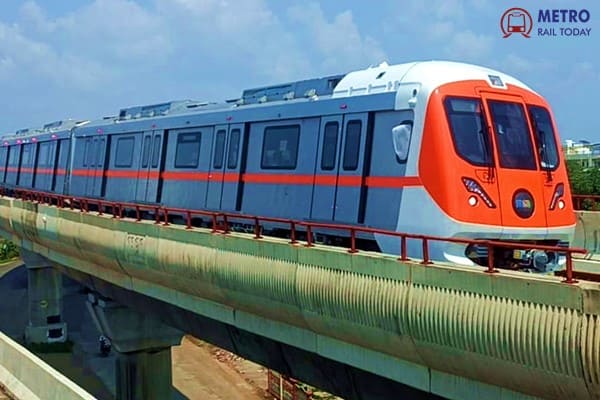 CMRS concludes 3-Day Safety Inspection of Bhopal Metro Priority Corridor
CMRS concludes 3-Day Safety Inspection of Bhopal Metro Priority Corridor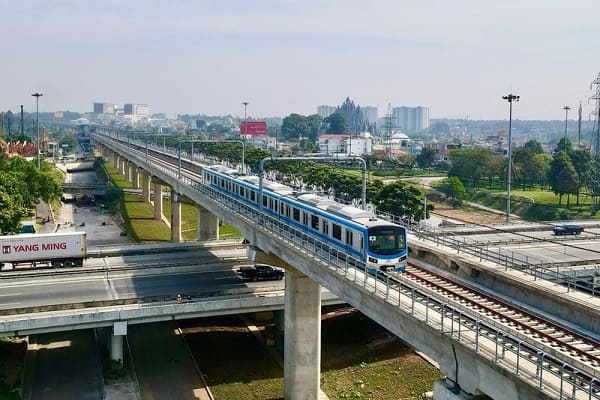 Ho Chi Minh City to invest USD19.67 billion to develop 232 km of Urban Railways by 2030
Ho Chi Minh City to invest USD19.67 billion to develop 232 km of Urban Railways by 2030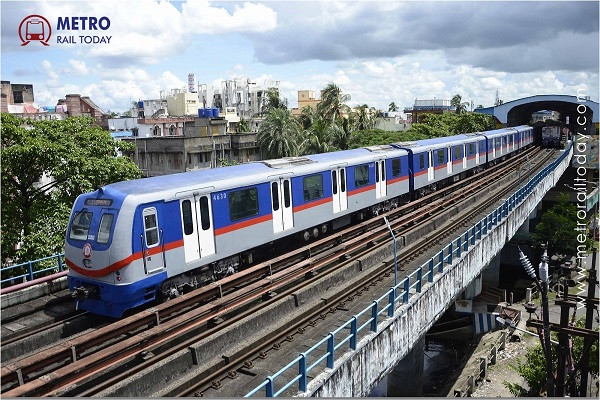 Kolkata Metro Blue Line to receive AI-Powered Security upgrade by March 2026
Kolkata Metro Blue Line to receive AI-Powered Security upgrade by March 2026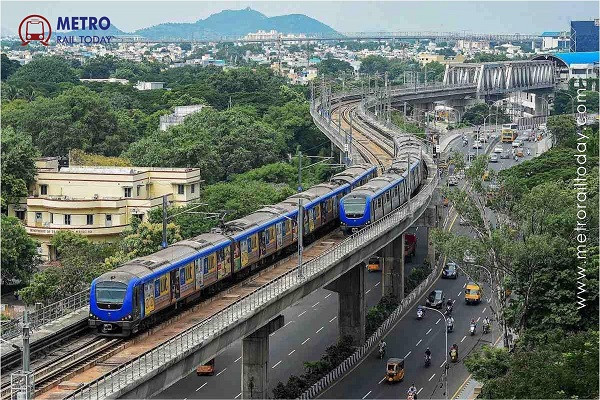 Central Govt returns Coimbatore and Madurai Metro proposals, Citing low population in cities
Central Govt returns Coimbatore and Madurai Metro proposals, Citing low population in cities SNTP Technologies: India's Largest Rebar Coupler Maker Setting New National Standards
SNTP Technologies: India's Largest Rebar Coupler Maker Setting New National Standards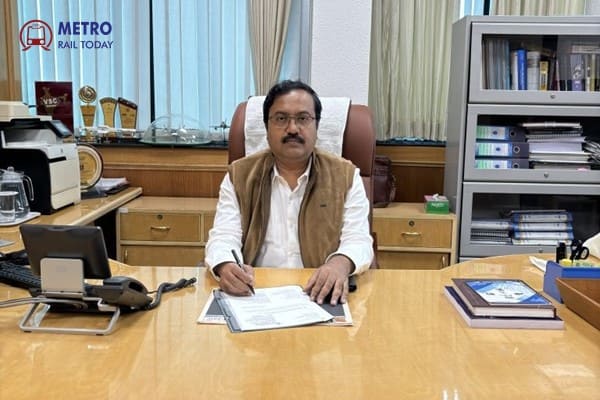 Nilabhra Sengupta appointed as new Commissioner of Metro Railway Safety (CMRS)
Nilabhra Sengupta appointed as new Commissioner of Metro Railway Safety (CMRS) Maharashtra approves India’s First Pod Taxi connecting Thane, Navi Mumbai & Mira-Bhayandar
Maharashtra approves India’s First Pod Taxi connecting Thane, Navi Mumbai & Mira-Bhayandar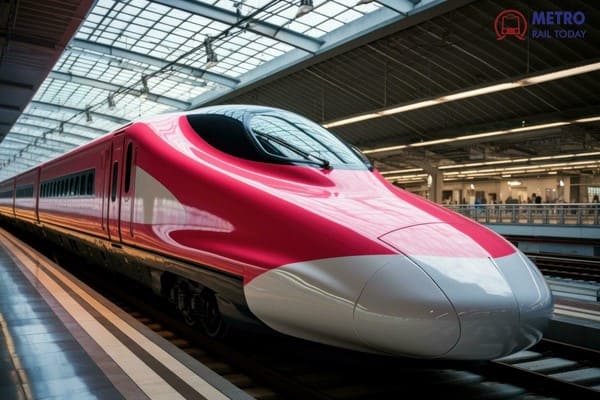 PM Narendra Modi reviews progress of Mumbai–Ahmedabad Bullet Train Project in Surat
PM Narendra Modi reviews progress of Mumbai–Ahmedabad Bullet Train Project in Surat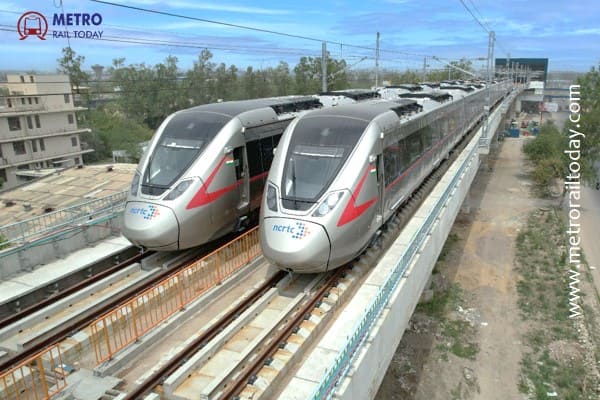 Public Investment Board approves two new RRTS corridors worth ₹65,000 crore
Public Investment Board approves two new RRTS corridors worth ₹65,000 crore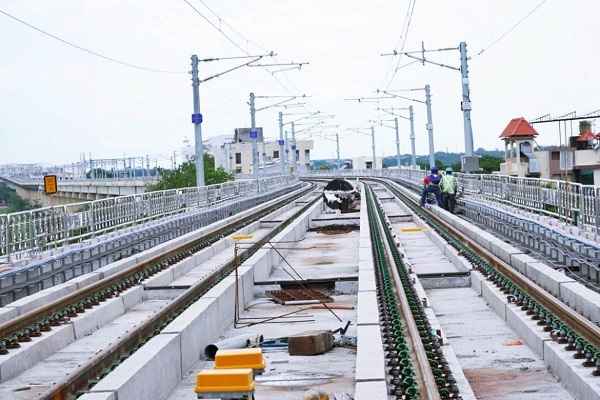 Texmaco Rail bags Track Work Contract for three key corridors of Delhi Metro Rail Project
Texmaco Rail bags Track Work Contract for three key corridors of Delhi Metro Rail Project
Central Govt returns Coimbatore and Madurai Metro proposals, Citing low population in cities

Chennai, India (Metro Rail Today): In a significant development affecting Tamil Nadu’s long-pending urban mobility plans, the Union Ministry of Housing and Urban Affairs (MoHUA) has returned the Detailed Project Reports (DPRs) for the proposed Coimbatore and Madurai Metro Rail projects. The ministry has cited that both cities fall short of the two-million population threshold mandated under the Metro Rail Policy, 2017, based on the 2011 Census data.
In its communication dated November 14, the ministry informed the state government that Coimbatore’s population stands at 15.84 lakh and Madurai’s at less than 15 lakh, thereby failing to meet Clause D(ii)(a) of the 2017 policy that defines eligibility for initiating metro rail systems.
“It may be noted that metro projects are cost-intensive and should be planned carefully for long-term sustainability,” the ministry stated, recommending that Tamil Nadu consider BRTS corridors or upgraded bus-based systems as more suitable alternatives for the current travel demand patterns.
Tamil Nadu Calls it a Setback; Activists Question Inconsistency
The decision has sparked strong reactions from transport experts and urban mobility advocates.
Transportation activist Dayanand Krishnan questioned the rationale behind the population-based rejection, highlighting that several Indian cities with similar population levels — including Agra (15.5 lakh), Patna (16.8 lakh), and Bhopal (17 lakh) — have already been granted metro approvals.
He also noted that the equity and subordinated debt for the Coimbatore and Madurai metro projects amounts to around ₹3,000 crore, translating to an annual burden of barely ₹750 crore for the Union government. “Rejecting the Tamil Nadu proposals on grounds of cost and population would deny transport benefits to a sizable commuter base,” he said.
Urban planner R. Naveen from Coimbatore termed the development a setback after nearly 15 years of planning. He argued that relying on outdated 2011 Census figures paints an inaccurate picture of today’s realities. “Coimbatore’s current population is believed to be over three million. Using decade-old figures doesn’t reflect the city’s explosive growth,” he said.
State Officials Say Process Not Over Yet
Though Chennai Metro Rail Limited (CMRL) has not issued an official statement, senior officials clarified that the ministry’s response does not amount to a full rejection. They emphasised that revised submissions — including additional documents and updated mobility assessments — will be prepared after discussions with the state government.
Tamil Nadu had submitted the Comprehensive Mobility Plan (CMP) and the Alternative Analysis Report, both necessary for central evaluation, for Coimbatore and Madurai in December 2024.
Centre Suggests BRTS as Interim Solution
MoHUA’s communication notes that Madurai’s CMP indicates existing travel demand patterns that justify a Bus Rapid Transit System (BRTS) rather than a metro corridor. The ministry has suggested that BRTS networks, higher-capacity buses, and improved urban transport management could serve the cities more efficiently in the near-term.
Despite the setback, Tamil Nadu officials and urban mobility experts remain hopeful that updated demographic data, strengthened project justifications, and revised DPRs may help revive the proposals. Both cities — rapidly growing, economically vibrant, and facing acute congestion — have long argued that metro systems are essential to support future urbanisation.
As the state prepares to resubmit its proposals, the debate continues over whether eligibility must strictly adhere to outdated Census figures or reflect contemporary urban realities and mobility needs.




